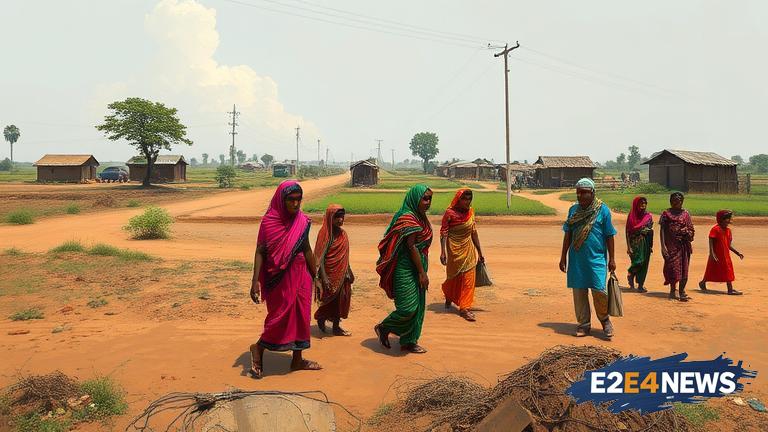Bangladesh is facing a severe humanitarian crisis as the country’s resources to support Rohingya refugees have been depleted. The Rohingya refugee crisis began in 2017 when hundreds of thousands of Rohingya Muslims fled Myanmar due to persecution and violence. Since then, Bangladesh has been hosting over a million Rohingya refugees in crowded and unsanitary camps. The Bangladeshi government has been providing food, shelter, and healthcare to the refugees, but the resources are now running out. The situation has been exacerbated by the COVID-19 pandemic, which has further strained the country’s economy and resources. The refugees are facing severe shortages of food, water, and healthcare, leading to a significant increase in malnutrition, disease, and mortality rates. The camps are also prone to natural disasters such as cyclones and floods, which have destroyed homes and infrastructure. The refugees are living in dire conditions, with inadequate access to basic necessities like sanitation, hygiene, and education. The Bangladeshi government has been appealing to the international community for assistance, but the response has been inadequate. The United Nations and other humanitarian organizations have been providing some support, but it is not enough to meet the growing needs of the refugees. The situation is becoming increasingly desperate, with many refugees facing starvation, disease, and exploitation. The Rohingya refugees are also facing significant mental health challenges, including trauma, anxiety, and depression. The crisis is not only a humanitarian issue but also a security concern, as the refugees are vulnerable to radicalization and exploitation by extremist groups. The international community must take immediate action to address the crisis and provide adequate support to Bangladesh to ensure the refugees receive the necessary assistance. The situation requires a comprehensive and sustainable solution, including the repatriation of the refugees to Myanmar, but this is a complex and challenging process. The Myanmar government has been accused of perpetuating the persecution and violence against the Rohingya, making it difficult to ensure their safe return. The international community must pressure the Myanmar government to take responsibility for the crisis and ensure the safe and dignified return of the refugees. In the meantime, Bangladesh needs urgent support to provide for the refugees and prevent a humanitarian catastrophe. The country is facing significant economic and social challenges due to the crisis, including strain on resources, infrastructure, and services. The crisis is also having a significant impact on the environment, with deforestation, pollution, and degradation of natural resources. The international community must take a coordinated and sustained approach to address the crisis and ensure the refugees receive the necessary support and protection. The situation is a stark reminder of the need for global cooperation and solidarity to address humanitarian crises and protect the rights and dignity of refugees and displaced persons.
